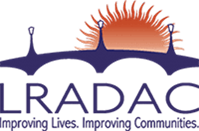[vc_single_image image=”5883″ img_size=”full” alignment=”center”][vc_custom_heading text=”What is the Opioid Epidemic and How Can We Help?” use_theme_fonts=”yes”]There were 42,249 accidental overdose deaths in the United States in 2016 (CDC). People from all over the country are calling it the opioid crisis or the opioid epidemic, and here in South Carolina, Governor Henry McMaster has declared opioid addiction a public health emergency.
The National Institute on Drug Abuse (NIDA) stated that opioid pain medications are now the single deadliest drug in the U.S.[vc_row full_width=”stretch_row_content” parallax=”content-moving” parallax_image=”5885″ parallax_speed_bg=”2″ css=”.vc_custom_1525887904303{padding-top: 40px !important;padding-right: 40px !important;padding-bottom: 40px !important;padding-left: 40px !important;}”][vc_row_inner][vc_column_inner width=”1/12″][/vc_column_inner][vc_column_inner width=”11/12″][vc_custom_heading text=”What is an Opioid?” font_container=”tag:h2|text_align:left|color:%23ffffff” use_theme_fonts=”yes”][/vc_column_inner][/vc_row_inner][vc_row_inner][vc_column_inner width=”1/12″][/vc_column_inner][vc_column_inner width=”5/12″]
“Opioids are a class of drugs that include the illegal drug heroin, synthetic opioids such as fentanyl, and pain relievers available legally by prescription, such as oxycodone (OxyContin®), hydrocodone (Vicodin®), codeine, morphine, and many others.”
– National Institute on Drug Abuse (NIDA)
[/vc_column_inner][vc_column_inner width=”5/12″]Opioids are highly addictive and commonly prescribed. Each year nearly five million opioid prescriptions are filled. About 4 in 5 heroin users started with opioids (DAODAS).
The numbers are alarming, but there is hope for those who need help reaching recovery from an opioid use disorder.[/vc_column_inner][vc_column_inner width=”1/12″][/vc_column_inner][/vc_row_inner][vc_row full_width=”stretch_row_content” content_placement=”top” css=”.vc_custom_1525888622771{padding-top: 40px !important;padding-bottom: 40px !important;background-color: #eceee5 !important;}”][vc_custom_heading text=”How are opioids misused?” use_theme_fonts=”yes”]
[icon name=”arrow-circle-right” class=”” unprefixed_class=””] Taking an opioid that was prescribed for someone else
[icon name=”arrow-circle-right” class=”” unprefixed_class=””] Taking a higher dose of an opioid than you were prescribed
[icon name=”arrow-circle-right” class=”” unprefixed_class=””] Taking an opioid to get high – often called “abuse”
[vc_custom_heading text=”How is opioid addiction or an opioid use disorder treated?” use_theme_fonts=”yes”]
At LRADAC, opioid use disorders are treated in several different ways through our adolescent, adult and family treatment services.
[vc_row full_width=”stretch_row”][vc_column width=”1/6″ offset=”vc_col-md-2 vc_col-xs-3″][vc_custom_heading text=”1″ font_container=”tag:p|font_size:72px|text_align:center|color:%23ffffff” google_fonts=”font_family:Alfa%20Slab%20One%3Aregular|font_style:400%20regular%3A400%3Anormal” css=”.vc_custom_1525879334211{background-color: #bf301a !important;border-radius: 20px !important;}”][vc_column width=”5/6″ offset=”vc_col-md-10 vc_col-xs-9″][vc_custom_heading text=”Detox for Opioid Addiction” font_container=”tag:h3|text_align:left” use_theme_fonts=”yes”]
Often detoxification from substances is a part of the treatment process. In detox, individuals receive medically-monitored care to help minimize the symptoms of withdrawal. Some withdrawal symptoms from opioids include agitation, anxiety, muscle aches, insomnia, sweating, abdominal cramping, diarrhea, nausea and vomiting. With our detox program, we can help manage these symptoms and provide support through the process.
[vc_row full_width=”stretch_row_content”][vc_separator][vc_row full_width=”stretch_row”][vc_column width=”1/6″ offset=”vc_col-md-2 vc_col-xs-3″][vc_custom_heading text=”2″ font_container=”tag:p|font_size:72px|text_align:center|color:%23ffffff” google_fonts=”font_family:Alfa%20Slab%20One%3Aregular|font_style:400%20regular%3A400%3Anormal” css=”.vc_custom_1525879321085{background-color: #bf301a !important;border-radius: 20px !important;}”][vc_column width=”5/6″ offset=”vc_col-md-10 vc_col-xs-9″][vc_custom_heading text=”Opioid Addiction Treatment” font_container=”tag:h3|text_align:left” use_theme_fonts=”yes”]
Outpatient Services
LRADAC knows that each person requires an individualized plan for treatment. Opioid use disorders can be treated through LRADAC outpatient programs. Click on the following links to learn more about outpatient services at LRADAC.
Medication Assisted Treatment (MAT)
MAT is a behavioral treatment model, where all clients engage in group and/or individual therapy, with intensity varying based upon an individual’s assessment. Individuals struggling with opioid misuse may come in for an assessment during regular walk in times. For clients accepted into the MAT program, medications such as Suboxone, Subutex, other buprenorphine medications, or Vivitrol may be prescribed as part of your treatment plan of care.
- MAT decreases opioid use, opioid-related overdose deaths, criminal activity, and infectious disease transmission (NIDA).
- MAT increases retention in treatment.
Click here to read more about MAT.
[vc_row full_width=”stretch_row_content”][vc_separator][vc_row full_width=”stretch_row”][vc_column width=”1/6″ offset=”vc_col-md-2 vc_col-xs-3″][vc_custom_heading text=”3″ font_container=”tag:p|font_size:72px|text_align:center|color:%23ffffff” google_fonts=”font_family:Alfa%20Slab%20One%3Aregular|font_style:400%20regular%3A400%3Anormal” css=”.vc_custom_1525879344661{background-color: #bf301a !important;border-radius: 20px !important;}”][vc_column width=”5/6″ offset=”vc_col-md-10 vc_col-xs-9″][vc_custom_heading text=”Opioid Addiction Recovery” font_container=”tag:h3|text_align:left” use_theme_fonts=”yes”]
LRADAC strives to create pathways to recovery from substance use disorders for the individuals, families and communities we serve in Richland and Lexington Counties. Let us be a part of your journey to recovery.
To learn more about what you can do to prevent your loved ones from developing a substance use disorder, visit our Prevention Programs page. For more information about the current opioid crisis in South Carolina and community action you can take, visit www.justplainkillers.com.

